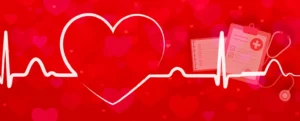5 Reasons to go to the Emergency Room : Allergic reactions
If you or someone you’re with is experiencing any of these signs, it’s a good idea to get a professional medical evaluation: swelling in your face or throat; wheezing; tingling sensations; difficulty breathing; low blood pressure. These symptoms could indicate anaphylaxis, which can be life-threatening if left untreated. If you have access to an EpiPen (or similar epinephrine auto-injector), use it at once and seek help immediately.
If you experience sudden symptoms like shortness of breath, trouble breathing, chest pain, hives or swelling in your throat that may mean you are experiencing an allergic reaction. These reactions can be life-threatening so it’s best to seek medical attention right away. If you have any doubt about what is causing your symptoms you should still go see a doctor. They will let you know if it’s safe for you to stay home and treat your condition with over-the-counter medication or if they need to transport you directly from their office.
If you have an allergic reaction, such as a severe rash or difficulty breathing, call 911 or go to your nearest emergency room. These are symptoms of anaphylaxis and can be life-threatening if not treated immediately. If it’s after hours or you don’t have access to 911, call your doctor for advice on what treatment is appropriate for your situation. It’s best to be safe than sorry when it comes to allergic reactions and potential anaphylaxis; don’t wait until you feel like you’re dying before going somewhere where treatment is available.




